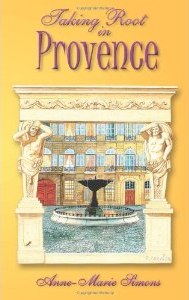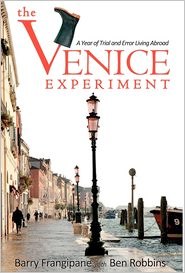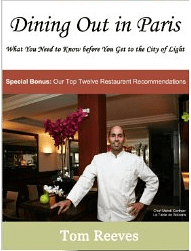
The above statements I make about this couple may or may not be true. The fact is that the author didn’t give me enough background information about herself or her husband to make me care that much about them as characters in her book. Where were they from? Where did they grow up? How did they meet? Do they have kids? What were their professions? Where were they living before they retired? She made passing mention of having lived in Washington in one of the first few chapters, but I didn’t know which Washington she was referring to; then in the next chapter, she clarified — Washington, D.C. This kind of detail is important for readers since the two “Washingtons” couldn’t be more different culturally, environmentally, and climatically. And depending on where people come from, you can get a sense of what they are like, which makes reading what they write more interesting.
The book is very factual, but with an observational tone, of the day after day and season after season life and activities of living in Provence for two retirees from the United States. My guess is that they must have made quite a bit of money in order to stop working so early in life, and then move to Europe full time. That fact also makes them somewhat hard to relate to. I’m speaking only from my own perspective, as a 30-something who also loves to travel; I scrape together enough money only every few years for an adventure, and STILL haven’t been able to see very much of Europe at all, because Europe is expensive. If there was some discussion in the book that made this couple easier to relate to, such as how they make it work financially – what they had to sacrifice, how lucky they feel to be able to live this way, the challenges and worries of meeting bills or the planning that went into having this European lifestyle – I would have paid more attention. Again, these are the personal touches that might have set me up to care more and enjoy the story.
It’s not that this book isn’t a pleasant narration of their lives in Provence, because it is very sweet and positive and, at times, cute. But it reads like a long letter home to someone she knows very well, and there isn’t enough background information in it about her or anyone she talks about to make me interested in what they buy at the market on Saturdays or the rosé they drink with leisurely lunches in the summertime right before their naps, or the summer festivals with long French names and descriptions.
A little dialogue would have also gone a long way to make this book more interesting. The author’s writing style is pleasant enough, but it would be much more engaging and interesting if I knew her personally, or if she included some conversation. But there weren’t enough juicy details or personal stories to appeal to me as a reader. In addition, she jumps around in confusing ways, starting a paragraph with a description of an event or a place — the climate of Provence for example — and then dives into a complete non sequitur, like health care, in the next. In all honesty I started this book six months ago, and was only after a nudge from my friend Chris Christensen at The Amateur Traveler, that I was able to finish, and write the review I promised him.
The author’s descriptions of countryside and meals and wine and local government ordinances read like a geography textbook or a chattering friend after her vacation in France. In a few places, the author would tell a “story” that made things suddenly interesting. One was about rooftop chimneys and illegal construction additions in Aix (mostly for student housing, as Aix-en-Provence is a college town). When the author lit a fire in her fireplace, the unintended result was mystery smoke pouring into a student’s upstairs apartment two houses away. There weren’t enough of those types of events in the book — describing a potentially dangerous or interesting situation that was a direct result of culturally lax attitude towards construction ordinances or the challenges of maintaining old buildings.
There is nothing inherently bad about her book, but without having been to the areas she describes, I need a bit more to go on. I need emotional reactions to predicaments or furrowed brows over language confusion; I need to read how they adjusted physically to both a change in daily routine (retired life vs. going to work each day) and a change in environment. Basically, I needed to invest more in the author and her characters emotionally in order to find them, and their lives in Provence, interesting.
I don’t want to say anything negative about a fellow travel enthusiast; memoirs and experiences are so personal that to criticize them feels unfair. That said, I was asked to “review” this book, and so to say that I liked it would be a lie. The author just didn’t set the stage well enough for me to care about her and her husband, or their friends, their stories, or their lives. If a bit more of her personality and social interactions came through, I think I would have found this book to be really enjoyable.
- Get an eSim to be able to use your smartphone abroad.
- Book Your Accommodation HERE
- Get a Car Rental
- Get a universal plug adapter
- Buy Travel Insurance
- Search for Great Tours HERE

 Book Review – The Venice Experiment by Barry Frangipane with Ben Robbins
Book Review – The Venice Experiment by Barry Frangipane with Ben Robbins Book Review: “Let’s Take the Kids to London” by David S. White
Book Review: “Let’s Take the Kids to London” by David S. White Book Review – Dining Out in Paris by Tom Reeves
Book Review – Dining Out in Paris by Tom Reeves Book Review: “The Espresso Break” by Barbara Zaragoza
Book Review: “The Espresso Break” by Barbara Zaragoza

Anne-Marie Simons
Says:January 15th, 2012 at 4:57 am
Some reviewers review books, others review authors. For Lynn Ahlberg to “review” (her quotes) a travel book it appears she needs to know where the author met her husband, whether they have children, what their professions were before retirement, how they fare financially and other facts that would have made her care more about the narrator. Also, it took her more than 6 months to read this 200-page book, which goes some way to explaining why she forgot the answers to some of her questions that are given in the beginning of the book. I clearly did not hold her attention, which I would have regretted if this were a novel. But TRiP is a factual description of my new environment, especially its cultural differences, and hopes to inform the reader who may have some interest in the area. It picks up where the guidebooks leave off. If it reads “like a long letter home” I take that as a compliment, but if the reviewer “cannot relate to someone who retired so early in life” (age 60) she does not get the gist of the book, i.e. that there are 25-30 years left to make the best of it and to settle where life is lived as you would want to live it. You sell a small house in Washington DC and buy an apartment in Aix — no fortune needed. And since she is still only in her thirties I am sure Lynn will be able to do the same or better, should she want to, when she reaches her seventies. In the meantime, I think she should not be obliged to review books the she cannot “relate” to.
Anne-Marie Simons
Jim Lovell
Says:August 25th, 2012 at 6:06 am
Ms. Simons, my partner and I recently retired, sold everything, and moved to Provence from the United States. We bought your book a year before our move in order to inform ourselves of the area, its customes, and the culture. By the time we made it here, the book was dog-eared and bookmarked. After arriving, it has been fun re-reading it to plan daytrips and to compare notes. And, just to give hope to the reviewer, we are a retired teacher and a retired flight attendant, not at all wealthy. With the right attitude, it is easy to live here frugally and yet deny ourselves very little.